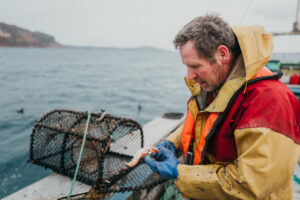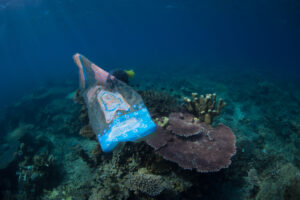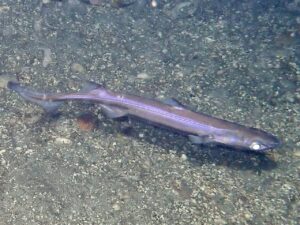A triple planetary crisis now affects every part of the ocean
Every part of the ocean is now affected by the triple planetary crisis of climate change, biodiversity loss, and pollution, warns a new report documenting the widespread changes affecting ecosystems, food production, economies, and human lives.
Every part of the ocean is now affected by the triple planetary crisis of climate change, biodiversity loss, and pollution according to the ninth edition of the European Copernicus Ocean State Report – documenting the widespread changes across the ocean affecting not just ecosystems but food production, economies, and human lives.
The ocean plays a crucial role in the carbon cycle, absorbing 90% of the excess heat caused by human-induced greenhouse gas emissions. Since the 1960s, ocean warming has accelerated, indicating that the Earth’s system is dangerously out of balance due to climate change.
The report also highlights that areas of marine biodiversity hotspots are acidifying faster than the global average, with multiple and rapid ocean change increasingly threatening endangered species. It confirms that plastic waste from every continent is now polluting all ocean basins.
Among the concerns are that the ocean is getting hotter, faster with global sea surface temperatures hitting a new record in spring 2024 at 21°C. Meanwhile, exceptionally intense and persistent marine heatwaves affected much of the ocean in 2023 and 2024, surpassing previous ocean surface temperature by 0.25°C. In fact, some Atlantic waters spent over 300 days out of 365 in marine heatwave conditions in 2023.
The report also warns that sea level rise has been accelerating at record rates, raising concern for homes and cultural heritage; increasing the risk of flooding and erosion in coastal areas. Many coastal UNESCO World Heritage sites in low-lying areas across Europe will be flooded in the coming centuries or millennia due to sea level rise, the report has warned.
Elsewhere, sea ice has been declining, invasive species have been harming fisheries, and marine life across the ecosystems is facing increasing pressure.

“The science is unequivocal: the ocean is changing fast, with record extremes and mounting impacts,” said Dr Karina von Schuckmann, a senior advisor at Mercator Ocean International, a specialist in digital oceanography and ocean forecasting and the operating organisation behind the European Commission’s Copernicus Marine Service.
“Protecting the ocean’s vital role in sustaining life and livelihoods starts with understanding how and why it is changing. The latest Copernicus Ocean State Report reveals record-breaking events, accelerating trends, and growing impacts on marine ecosystems and societies – providing the science needed to inform effective, forward-looking decisions.”
The Copernicus Ocean State Report is a flagship annual publication of the Copernicus Marine Service and published in the scientific journal State of the Planet, following an independent peer-review process. Its scientific findings are delivered via powerful computer models, satellite observations, and in situ measurements.
Among those findings, the report has also warned that rising sea temperatures are starting to have an economic impact. In summer 2023, the longest marine heatwave on record in the Mediterranean led to surface water temperatures 4.3°C above normal. This allowed invasive species to wreak havoc in Italy; Atlantic Blue Crabs caused a 75 to 100% collapse in clam production in the Po Delta, while Bearded Fireworms affected artisanal fisheries in Sicily.
At the poles, sea ice cover has been declining rapidly. The Arctic recorded four all-time lows between December 2024 and March 2025 when there was a recorded 1.2 million square-kilometres less sea ice than the long-term winter average – an area more than four times the size of Poland. The Antarctic, meanwhile, experienced its third consecutive year of low sea ice extent in 2024, after setting an all-time record low in 2023. In February 2025, there were approximately 0.6 million square-kilometres less sea ice than the long-term average – an area twice the size of Italy.
“The Ninth Copernicus Ocean State Report confirms that every part of the ocean is now affected by the triple planetary crisis,” said Pierre Bahurel, director general of Mercator Ocean International. “In such a context, we need reliable science and operational tools more than ever. [This] annual report turns cutting-edge science into actionable knowledge, helping Europe and the world strengthen resilience, safeguard security, and protect the ocean for future generations.”


"*" indicates required fields
Printed editions
Current issue
Back issues

Back Issues
Issue 43 Sir David Attenborough’s ‘Ocean’

Back Issues
Issue 41 Holdfast to the canopy
Enjoy so much more from Oceanographic Magazine by becoming a subscriber.
A range of subscription options are available.








